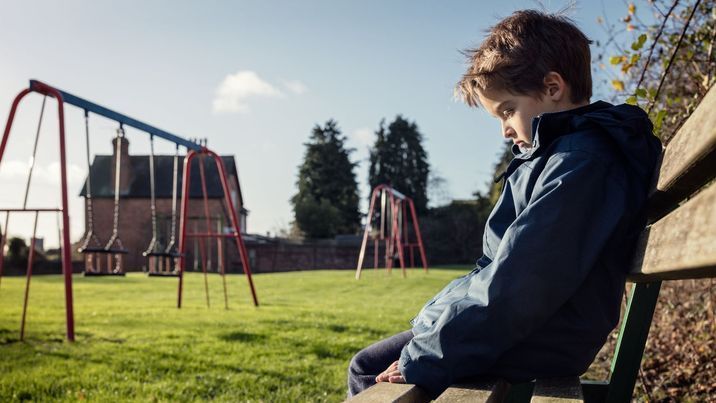The joy of reading: nurturing gifted children’s literacy
Reading is an immersive, joyful and engaging activity which can enhance our communication and our ability to empathise and inhabit different worlds and perspectives. As an English teacher, parents often tell me: “My child HATES reading. How can I encourage them to read more? How many hours per day should they be reading?”
In our fast-paced, competitive and technologically enriched world, our reading may be interrupted by social media, family members, classmates and other priorities. So, how do we encourage curiosity and wide reading and yet account for the diversity of our students and families ’lives and contexts?
We can start from the simple notion: reading is everywhere. Each moment in our daily life represents an opportunity to develop our literacy, spelling, vocabulary. We read when we move around in our daily lives, stream films and series, watch the news and ponder text messages, and while we may well be frequently interrupted, the reading continues through multiple platforms as we rush through our busy days. Starting from this point, I list below some simple, practical strategies for nurturing literacy for families – students, parents and guardians. The strategies can also be useful for teachers looking to embed literacy and immersive activities across topics and disciplines.
1. Talk about words, their meaning and origin
How is reading, language and the beauty of words a part of your daily life? Talking about words and thinking actively about vocabulary helps foster curiosity and develops a broad vocabulary. Whether you are watching a film, recent news or discussing your day with your family (or students in your class!), try to actively reflect on words you use in discussions. This can be as simple as your child telling you: “The teacher gave me good feedback”, and you responding, “I am so glad you found the feedback constructive”! Simply responding with a synonym or a more nuanced term will allow you to expand your vocabulary through discussion.
2. History of words: delving into Latin and Greek!
Gifted students have immense curiosity about the world and different areas of inquiry. Another strategy to nurture literacy and expand vocabulary is to think about the history (etymology) of certain words we use on a daily basis and explore their Greek and Latin foundations.
If your child enjoys monsters and superheroes, they may be quite keen to know what monere or super mean in Latin! Explore the most common words tied to your child’s interest and find out their history! Encouraging the joy of linguistic discoveries can turn daily conversational items into little gems of discovery which may inspire your gifted child or student and consequently build their vocabulary and linguistic proficiency.
3. Embrace the digital: on the use of apps
As teachers and parents, we are also a crucial part of the learning journey – and educational applications can help us upskill (and possibly develop newfound linguistic passions!). There are numerous free and accessible apps which are basically digital versions of prominent dictionaries (Oxford, Cambridge, Merriam-Webster).
Having these dictionaries on the devices you use often will make it easier to explore and discover new words and discuss their meaning. Similarly, a digital Thesaurus app can provide numerous synonyms to enrich your daily vocabulary as you communicate with your family or students.
4. Make it fun – embracing games
Today’s computer games can be elaborate, enriching and engaging, creating worlds filed with educational content and potential! They can also help expand our vocabulary and provide the much-needed differentiation, acceleration and enrichment for gifted children. There are numerous simulations, adventures, strategy games and others which build language skills, including reading and writing, in a positive and engaging way.
Choosing the right content and making learning fun will allow your child or students to use screen time actively and learn in the process. This is particularly important for building confidence in reading, writing and English as a subject and creating an environment where children can learn and be comfortable making mistakes! That is how we learn – and maintain that growth mindset which allows us to grow.
5. Watch films and series with English subtitles
This is a simple method – when streaming your favourite films or series, use English subtitles! Most popular streaming platforms have readily available quality subtitles which follow closely what is said on the screen or effectively translate from other languages into English. Watching visual texts and following the written texts seen in subtitles can be a helpful way to include more reading into your daily routines.
6. Provide variety: reading through podcasts and audiobooks
Providing multiple means of presenting information is an important aspect of inclusive education. Starting from this premise, another way to promote literacy development and motivation is to provide variety! For example, podcasts are becoming more popular than ever in our busy, fast-paced lives enriched by technology. Easily accessible on our devices, podcasts can be another great learning tool when coupled with the transcript.
Most podcasts have accessibility options which include a good transcript – allowing your child / student to easily follow along! Again, pairing what is heard with what is written could also motivate and allow greater focus. Similarly, audiobooks are a great way to maintain engagement with a book – paired with a physical copy of the book or an eBook version may provide that interesting variety and alternative ways of accessing the content.
7. Build on interests and passions
The final step is simple enough – we can always build on our children’s / students’ interests and passions. If the goal is to improve overall literacy, expand vocabulary, or become a more confident and adaptive communicator, building on your child’s or student’s interests can make learning fun, effective – and nurture that key ingredient needed for success – motivation!
I hope you find these strategies useful – feel free to get in touch and share your own ideas and insights on supporting literacy across contexts.
Dr Maja Milatovic
(MA, MEd, PhD)
AAEGT members can access our members area for a suggested reading list for grades 3-6. Not a member? Find out how to become a member
NB: Please note that this article only represents the views of the author(s), and is not necessarily representative of the views of the Australian Association for the Education of the Gifted and Talented.
Resources


New Paragraph
Striving to improve outcomes for gifted learners
Copyright 2021 AAEGT - Privacy Policy









